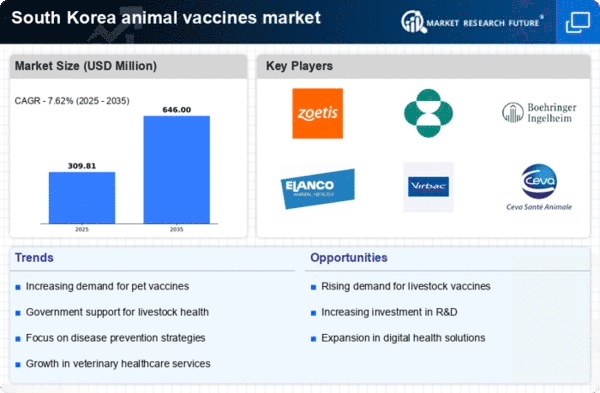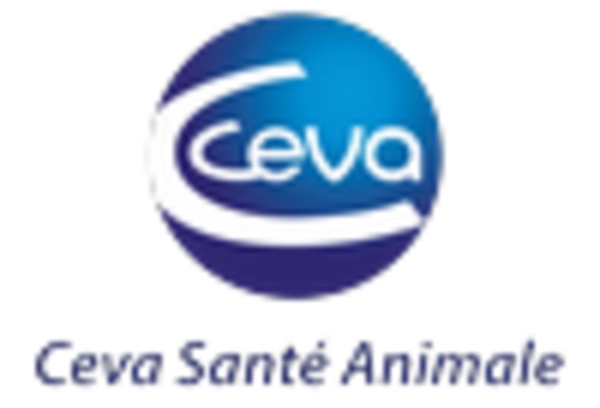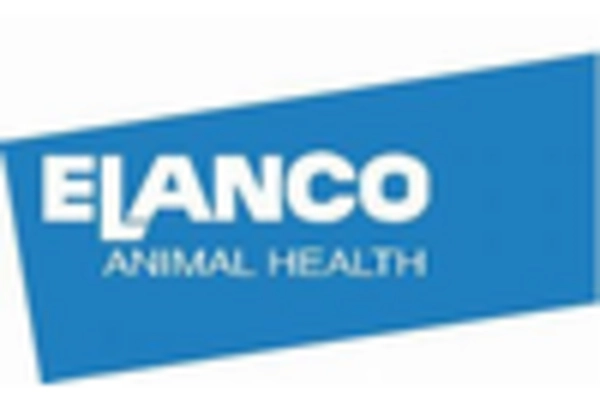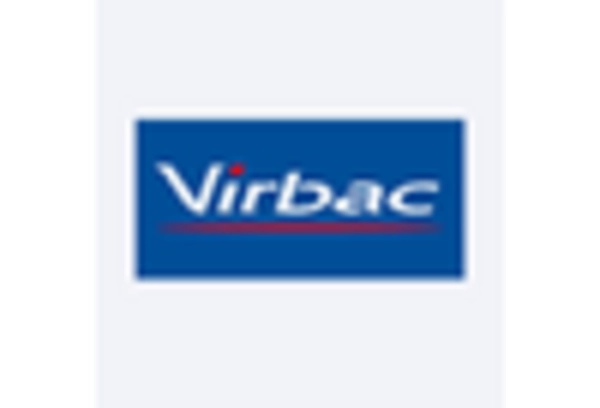Emerging Zoonotic Diseases
The rise of zoonotic diseases in South Korea has heightened awareness regarding animal health and its implications for human health. Diseases such as avian influenza and foot-and-mouth disease pose significant threats to both livestock and public health. The government has implemented stringent measures to control these diseases, which includes vaccination campaigns. In 2024, the animal vaccines market is projected to grow by 8% as a direct response to these emerging health threats. This proactive approach not only protects animal populations but also mitigates risks to human health, thereby reinforcing the importance of vaccination in the agricultural sector.
Rising Livestock Production
The increasing demand for animal protein in South Korea drives the livestock sector, which in turn propels the animal vaccines market. As the population grows, the need for meat, dairy, and eggs escalates, leading to higher livestock production. In 2023, the livestock production value in South Korea reached approximately $20 billion, indicating a robust market for animal health products. This growth necessitates effective vaccination programs to prevent disease outbreaks, ensuring the health of livestock and the safety of food supply. Consequently, the animal vaccines market is likely to expand as farmers invest in vaccines to maintain productivity and meet consumer demand.
Advancements in Vaccine Technology
Innovations in vaccine technology are transforming the animal vaccines market in South Korea. New methods, such as recombinant vaccines and mRNA technology, are being developed to enhance efficacy and reduce side effects. These advancements are crucial for addressing the challenges posed by emerging diseases and antibiotic resistance. In 2025, the market is expected to see a growth rate of 7% as these technologies become more prevalent. The animal vaccines market is likely to benefit from these innovations, as they provide more effective solutions for disease prevention in livestock, ultimately leading to improved animal health and productivity.
Government Initiatives and Funding
The South Korean government has recognized the critical role of vaccination in maintaining animal health and food security. Various initiatives and funding programs have been established to support the development and distribution of vaccines. In 2025, the government allocated approximately $15 million to enhance vaccination programs for livestock. These efforts aim to reduce the incidence of infectious diseases, thereby promoting a healthier animal population. As a result, the animal vaccines market is expected to benefit from increased government support, leading to innovations in vaccine technology and broader access for farmers.
Consumer Awareness and Demand for Quality Products
There is a growing consumer awareness regarding the quality and safety of animal products in South Korea. This trend has led to increased demand for healthy livestock, which directly influences the animal vaccines market. Consumers are more inclined to purchase meat and dairy products from vaccinated animals, as they associate vaccination with higher quality and safety standards. In 2025, it is estimated that the market for animal vaccines will grow by 10% due to this shift in consumer preferences. The animal vaccines market must adapt to these changing demands by ensuring that vaccination programs are effective and widely implemented.
















